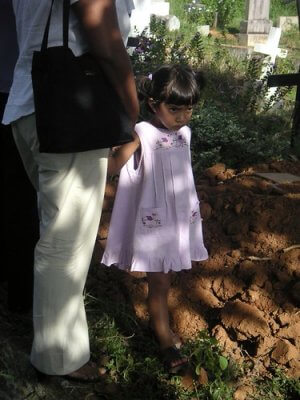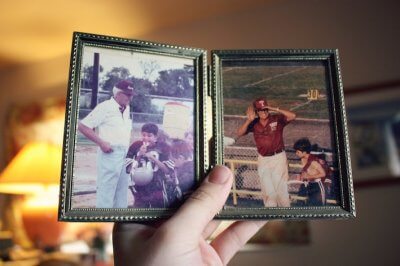Talking to Children About Death and Dying
The only thing that is guaranteed in life is that one day we will die. It’s a sobering thought, and it’s also a subject that we still seem to find taboo. And even more so when it comes to talking to children about death and dying.
Writer and mother of four Stephanie Nimmo experienced a double tragedy, losing her husband to cancer, and then 13 months later her daughter to a rare genetic disease. She shares her well-earned advice on talking to children about death, and helping them to navigate grief and loss.
How much can children understand about death?
Children understand a lot more than we give them credit for, and are often more open than adults when it comes to talking about death.
They do, however, need to take their cues from adults about how to process the big confusing emotions when a loved one is actually lost.
Talking to children about death and dying
1.Recognise that each child is unique.
One child might be very fascinated about death and want to ask endless questions. Another child might prefer to talk less and do their own research.
2. Tailor how you share news about illness and dying to each child.
If your children are of varying ages, it might not be the best idea to gather them together to share news of a sick relative or a bereavement. Consider what environment each child is most relaxed in, and how much information they will individually be able to understand.
For example, a teenager might feel most comfortable having a chat when out for a drive together. Whereas a younger child with a learning difficulty might need minimal information offered during play time.
3. Don’t overburden your child with information.
It’s important to be honest but not overwhelm a child with more information than is appropriate for their age.
If a relative is sick and will eventually die, but the ‘when’ is uncertain? Be honest about the illness and allow your kids to ask questions and take it from there. There is no need to share, for example, your own anxiety that the loved one might die soon.
4. Be open to any and all questions – at any time.
Some children might need time to process and not have questions until far later. Don’t press your child to respond or ask questions immediately. Give them the space they need, and keep the door to questions open.
5. Normalise the process of death.
Keep reassuring your child that death and dying, as well as bereavement and grief, are a natural process.
6. Do not use euphemisms.
Saying things like “gone to a better place” is very confusing for any child. Try to be direct and avoid any doubt with the language you use. “Dying” might be more helpful for a child than “passing away”.
7. Acknowledge their fears.

By: Indi Samarajiva
And acknowledge their fears around the subject, especially fears around their own death.
Reassure them that just because someone they loved has died, it doesn’t mean that they will die soon too.
Navigating bereavement and grief with children
1. Be guided by your child.
Do not assume that he or she will not want to see the body or attend the funeral. It’s an important part of a child’s grieving process to feel that they were able to make decisions and have choices.
2. Decide together on your own way of saying goodbye.
This might be putting flowers in the hair of your loved one after they have passed, and placing personal mementos into a coffin. Or it might be just talking about the person you have lost, looking at pictures and reminiscing.
3. Allow your children to be part of the funeral.
Consider allowing children to do things like read poems if they would like to.
4. Be open and honest with all your emotions.
For a child to be able to work through their grief they need to know it’s okay to give in to their emotions. Model to them that it’s okay to cry, but also to laugh. Anger is okay too, show them how to navigate it in healthy ways.
5. Talk about your own bereavement process.
Share if you are seeing a bereavement counsellor and how that is going for you.
6. Develop social stories.

photo by Lindy Baker
Very small children often do not have the vocabulary to talk about the big feelings around grief. Social stories help them articulate those feelings by saying the words for them, and showing that you understand how they feel. Memory boxes, photographs, videos…are all important to help the child remember happy times and focus on the life their loved one lived, and not the just their death.
7. Use ritual and symbols.
Doing something symbolic like planting seeds or lighting a candle helps give them some sort of closure.
8. Do not assume they need grief counselling immediately.
Your child may seem to be coping well for the first year, and it may be years later that they need to talk about what happened. Encourage them to talk about feelings and to ask for help.
9. Keep the conversation open.
Talk about the person who has died, remember them. Mark anniversaries, birthdays, mention them at Christmas. Children can feel afraid of talking about someone who has died in case it upsets the adult, but this can reassure them and encourage them to talk when they need to.
Do you or your child need support with grief and bereavement? We connect you with top grief counsellors and child psychologists in central London. Or find a UK-wide registered counsellor on our booking site, as well as online therapists that help you wherever you may live.
Want to share your own tip for talking to children about death and dying? Comment below.
 Stephanie Nimmo is a freelance health journalist. She has written a memoir called Was This in the Plan? about caring for her disabled child and terminally ill husband, and a children’s book called Goodbye Daisy which supports children grieving the death of a loved one. Find her on her blog, on Twitter. and on Instagram.
Stephanie Nimmo is a freelance health journalist. She has written a memoir called Was This in the Plan? about caring for her disabled child and terminally ill husband, and a children’s book called Goodbye Daisy which supports children grieving the death of a loved one. Find her on her blog, on Twitter. and on Instagram.





